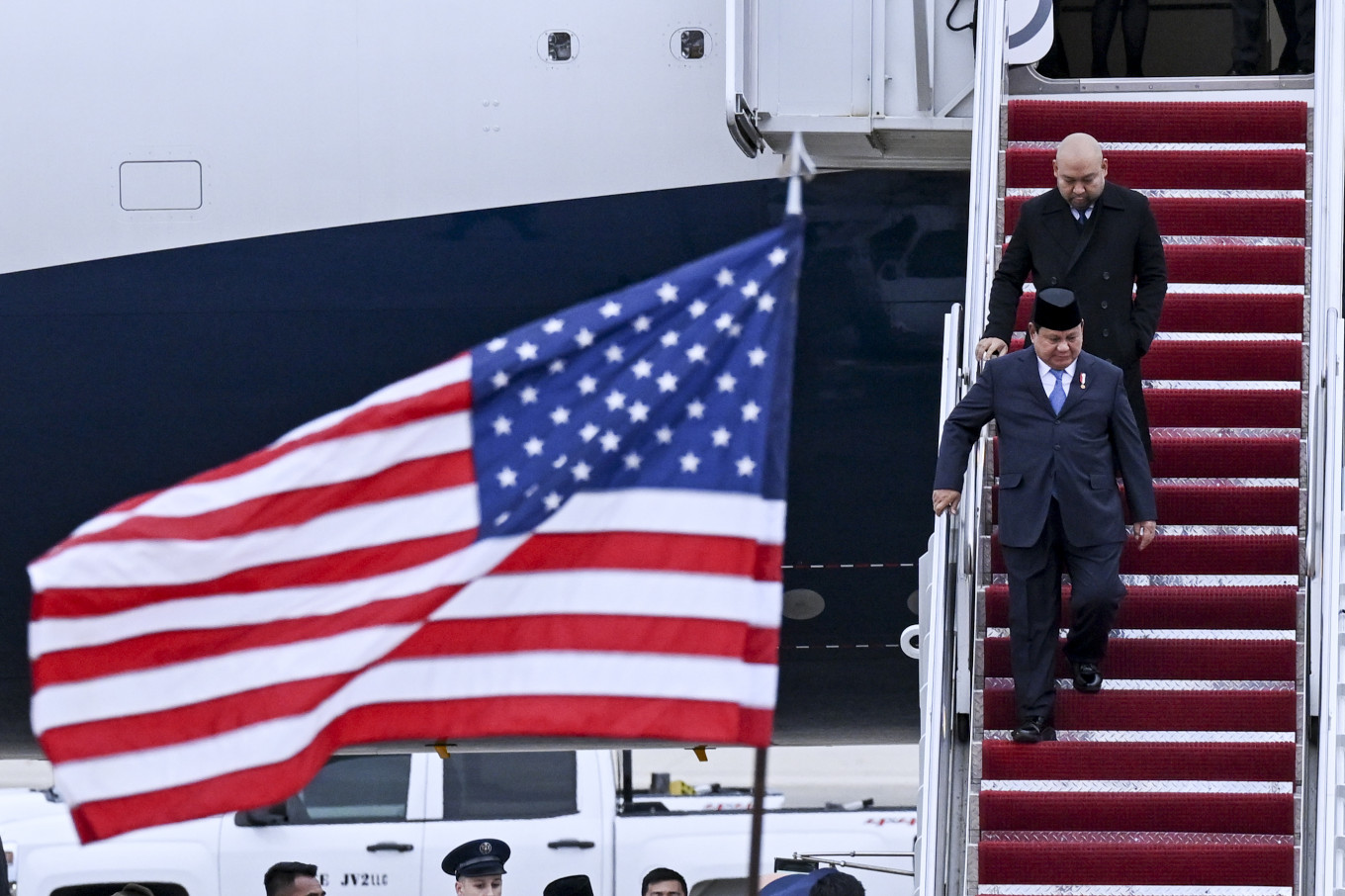Table of Contents
Headline: US-Indonesia Relations to Endure Amid Trump’s Protectionist Agenda
With the inauguration of President-elect Donald Trump on the horizon, concerns over a potential shift toward a more protectionist U.S. policy are growing. However, U.S. Ambassador to Indonesia, Kamala S. Lakhdhir, assured that the bilateral ties between Washington and Jakarta would remain strong, rooted in mutual interests that have developed over years.
A Diplomatic Assurance
On Wednesday, amid global apprehension about Trump’s impending presidency, Ambassador Lakhdhir spoke at a press briefing, emphasizing her commitment to representing the ongoing administration of President Joe Biden. She noted the enduring relationship between the United States and Indonesia, which spans critical sectors such as economic development, trade, education, public health, and renewable energy.
"I’ve seen many transitions in my many years as a career diplomat for the U.S. One of the things we [ask] is: What are the fundamental interests between Indonesia and the U.S.?" Lakhdhir stated. She underscored that these shared interests would support the continuity of their diplomatic relations through the transitions in both countries.
The transition period is a poignant moment, as countries around the globe, including Indonesia, brace for potential policy shifts. Analysts and experts fear that Trump’s promised economic changes may result in decreased engagement from the U.S., including reductions in foreign aid and foreign direct investment for Southeast Asian nations. Such shifts could hinder economic growth and elevate unemployment rates within the region.
The concerns centered around Trump’s protectionist policies could lead to heightened tariffs and intensified competition between the U.S. and China. This rivalry may substantially affect Asia’s economic dynamics, particularly for countries heavily reliant on U.S. trade and investment.
Despite the shifting political landscape, Ambassador Lakhdhir remains optimistic. "These fundamental interests between the two countries and peoples [will] sustain us through the political transition here in Indonesia and the United States," she assured. Emphasizing the indelible links formed over decades, she highlighted that shared goals transcend individual leadership.
Key areas of collaboration between the U.S. and Indonesia include:
- Economic Development: Support for Indonesia’s economic growth, particularly in sectors such as infrastructure and digital innovation.
- Trade: Continued engagement to foster an open and fair trading environment.
- Education: Collaborations aimed at improving educational systems and opportunities for the youth.
- Public Health: Joint efforts in combating health crises, exemplified by their cooperation during the COVID-19 pandemic.
- Renewable Energy: Initiatives to address climate change and promote sustainable energy alternatives.
The Broader Implications
Trump’s presidency could challenge existing partnerships in the region, heightening the need for countries like Indonesia to find strategic navigation through potentially stormy waters. With Trump’s administration set to bring a more transactional approach to international relations, the onus falls on Asian economies to adapt and maintain advantageous bilateral relationships.
Moreover, insights from market analysts suggest that Southeast Asian leaders should actively engage with U.S. representatives to reaffirm their countries’ importance in regional geopolitics. The future of Indonesia’s economy may rely heavily on the ability to attract investment and support even amid a less predictable foreign policy framework.
Building Resilience
For the Indonesian government, the next steps involve reassessing trade agreements and diversifying partnerships beyond U.S. influence. Engaging with other significant players in the Asia-Pacific region, such as China and Japan, will be crucial for maintaining economic stability and growth. Furthermore, enhancing diplomatic dialogues through regional organizations like ASEAN will help fortify Indonesia’s strategic interests.
Looking Ahead
As the world watches the unfolding transition in U.S. leadership, the spotlight remains on Indonesia to adeptly navigate the complexities of these shifting dynamics. The bilateral ties forged over decades may indeed be tested, but as Ambassador Lakhdhir pointed out, shared interests can be a powerful stabilizing force.
“While the political landscapes change, our commitment to common goals should remain steadfast,” she concluded, urging all parties to focus on collaboration rather than division.
Readers are invited to share their thoughts and predictions regarding the future of U.S.-Indonesia relations, especially in light of Trump’s upcoming presidency. How do you foresee these developments impacting your community or industry? Join the conversation below.
For further reading on the implications of Trump’s policies, check out our related articles on the potential impacts on Southeast Asia and insights from local economists. Additionally, for an in-depth perspective, visit authoritative sources such as The Diplomat and The Straits Times.
Note: This article is intended for informational purposes only and reflects status as of the current date. Accurate as per information available up to October 2023.
{Insert Image/Multimedia content here as per original document guidelines}
What strategies can Indonesia implement to leverage the evolving dynamics of US-China relations for its own economic growth?
Minded language to invite guests to share their perspectives and thoughts. Remember to fact-check and verify any information provided by the guests before publishing.
1. How do you think the bilateral relationship between the United States and Indonesia will evolve under President Trump’s administration, given his protectionist agenda?
2. In what ways can Indonesia navigate potential trade challenges that might arise due to protectionist policies in the US?
3. Do you think the US-China trade war could present opportunities or threats for Indonesia’s economy?
4. What role do you see ASEAN playing in maintaining stability and promoting cooperation in the context of the evolving US-Indonesia relationship?
5. How can the Indonesian government ensure that its economic policy remains resilient and adaptive amid global geopolitical shifts?
6. In your opinion, what specific sectors or areas should Indonesia prioritize in its diplomatic engagement with the US and other major powers in the region?
7. How can Indonesia balance its bilateral relations with the US and China to maximize its economic benefits while minimizing the risks of instability or conflict?
8. What challenges and opportunities do you foresee for Indonesia’s young generation in the face of these geopolitical shifts?
9. How can the US and Indonesia collaborate more effectively on shared interests such as renewable energy and combating climate change?
10. what message would you like to leave our readers regarding the future of the US-Indonesia relationship and its potential impact on the global landscape?


